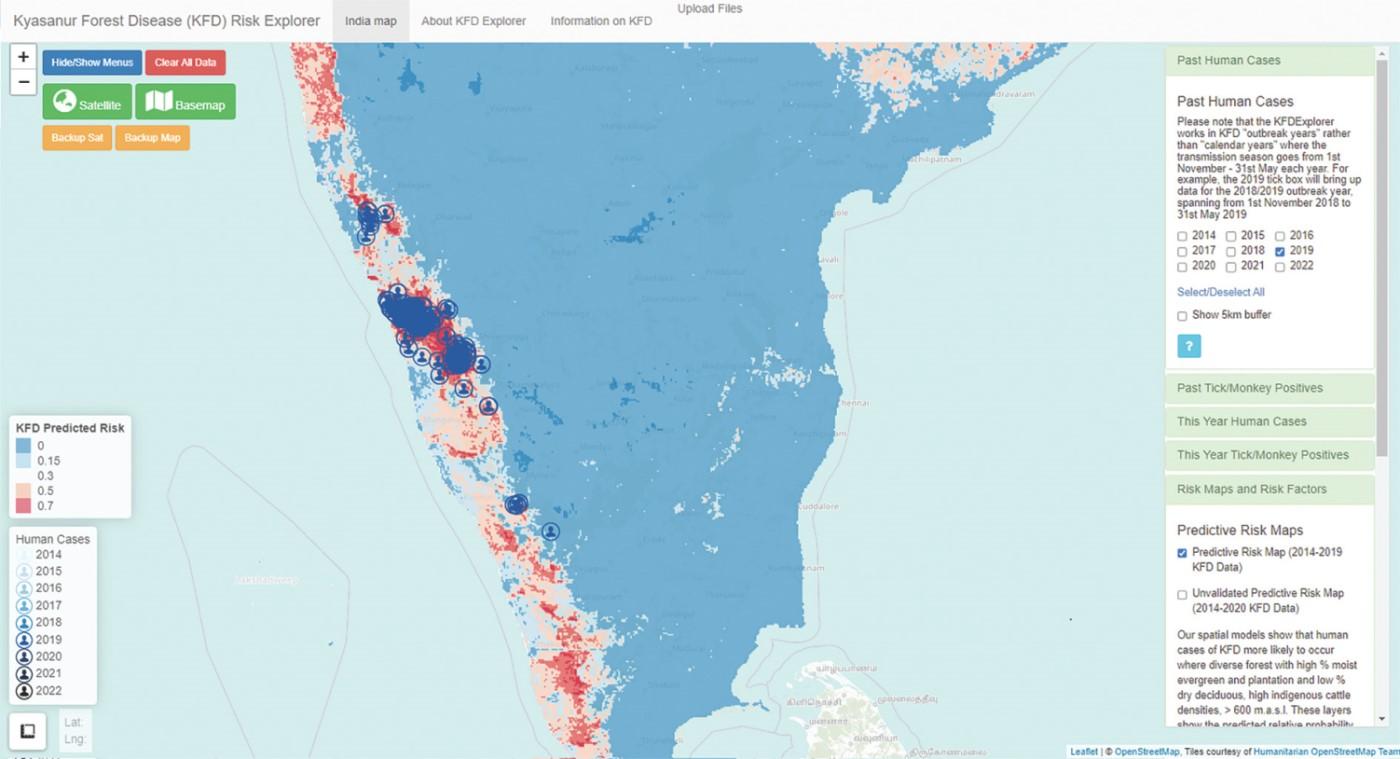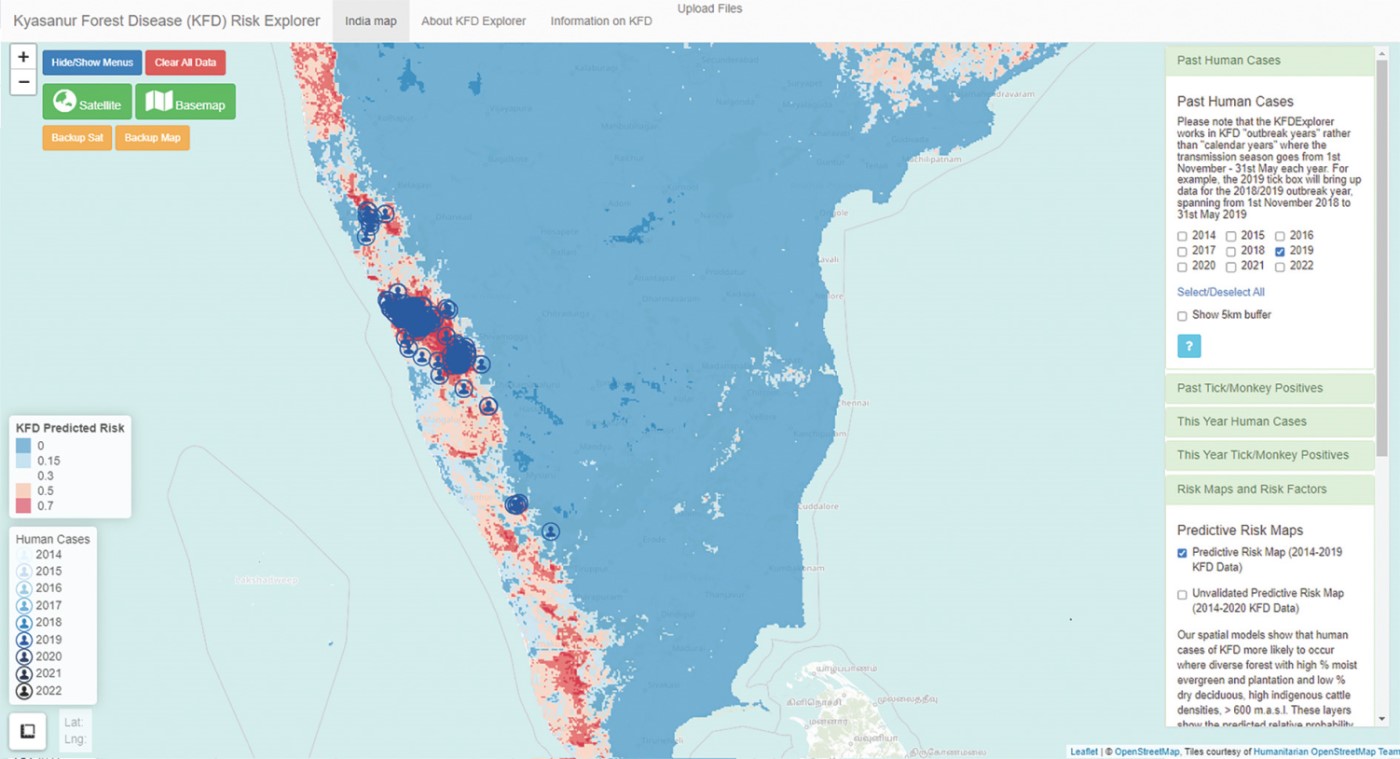24th March 2022
Co-production of knowledge as part of a OneHealth approach to better control zoonotic diseases

Figure from the paper shows a snapshot of the KFDExplorer Tool showing south India overlaid with the human cases reported in 2019 to the Department of Health and Family Welfare Services, Karnataka
Graphical representation of the retrospective theory of change on researcher expectations and the system-level outcomes of the co-production process adopted in the MonkeyFeverRisk project
There is increased global and national attention on the need for effective strategies to control zoonotic diseases. Quick, effective action is, however, hampered by poor evidence-bases and limited coordination between stakeholders from relevant sectors such as public and animal health, wildlife and forestry sectors at different scales, who may not usually work together.
This paper brings together OneHealth and knowledge co-production and reflects on lessons learned for future OneHealth co-production processes by describing a process implemented to understand spill-over and identify disease control and mitigation strategies for a zoonotic disease in Southern India (Kyasanur Forest Disease).
Citation
Asaaga FA, Young JC, Srinivas PN, Seshadri T, Oommen MA, Rahman M, et al. (2022) Co-production of knowledge as part of a OneHealth approach to better control zoonotic diseases. PLOS Glob Public Health 2(3): e0000075.
https://doi.org/10.1371/journal.pgph.0000075
Published: March 24, 2022
